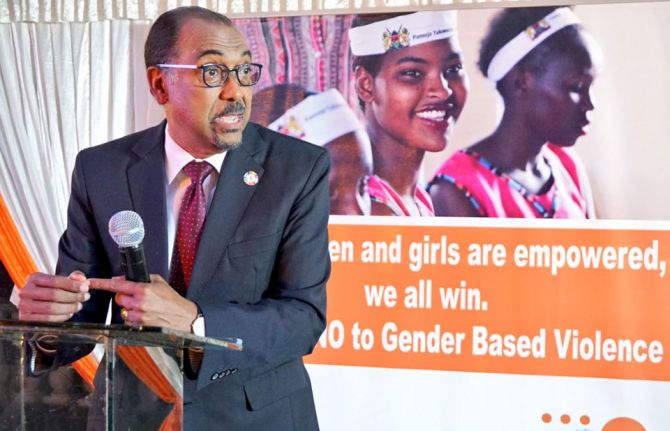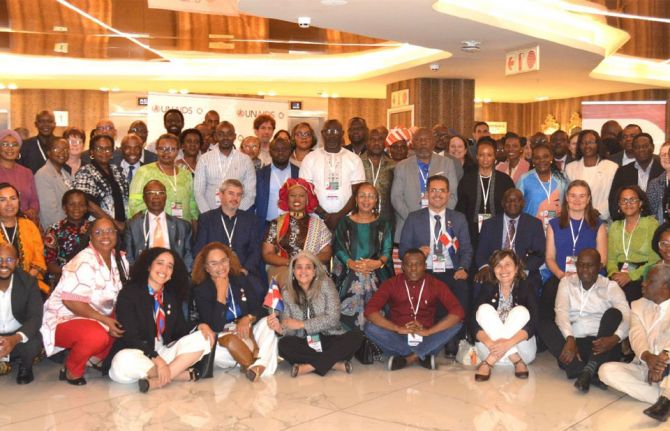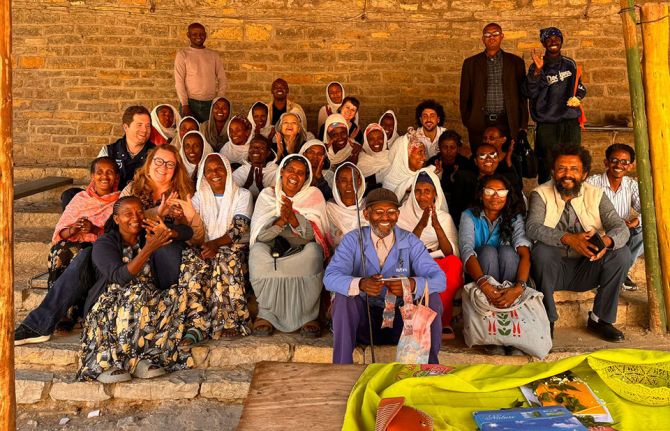

Feature Story
Shining a light on gender-based violence in Kenya: why we must do more
29 May 2018
29 May 2018 29 May 2018Gender-based violence is one of the most persistent violations of human rights across the globe. According to the World Health Organization, about one third of women worldwide have experienced violence. Intimate partner violence increases the risk of HIV, in some regions by up to 1.5 times. Among marginalized populations, a high prevalence of violence is linked with higher rates of HIV infection, in particular among transgender women.
In Kenya, a recent study found that 32% of young women aged 18–24 years and 18% of their male counterparts reported experiencing sexual violence before the age of 18. Gender-based violence reduces the bargaining power to negotiate safer sex, stay on treatment or remain in school.
To shine a light and galvanize action to end gender-based violence in Kenya, the United Nations Population Fund (UNFPA), together with the Kenya Medical Women’s Association and the Kenya Women Judges Association, and partners, launched the Tuongee (Let’s Talk) Campaign on 25 May at an event hosted by Nicolas Nihon, the Ambassador of Belgium to Kenya and UNFPA.
Speaking at the launch, Michel Sidibé, the Executive Director of UNAIDS, said, “Gender-based violence and HIV are intertwined epidemics. If we are to transform either, we must address the structural barriers that drive both.” He spoke about the need to equip young women with the skills and capacities to make informed decisions about their health and underscored the critical importance of engaging boys and men early to change behaviours and challenge norms that allow gender-based violence to persist.
A young survivor of gender-based violence from Kisumu, a port city on Lake Victoria, made a moving and powerful testimony, reminding participants of the critical importance of the campaign and the need to speak up to help survivors to accept and heal. She also urged parents to talk to their children about violence and to support them in speaking out.
Mr Nihon underlined the commitment of the Government of Belgium to combat all forms of gender-based violence and commended the work of the Kenya partners in supporting the survivors.
“Gender-based violence is, unfortunately, not an uncommon phenomenon against women and girls,” said Ademola Olajide, UNFPA Representative to Kenya. “Care and support for the survivors is critical to eliminate gender-based violence and requires a multisectorial approach.”
The participants affirmed that community-level action combined with global advocacy and structural change can lead to change and that there is much potential to build on the good work already done to accelerate results.
Achieving gender equality, advancing women’s empowerment and fulfilling the sexual and reproductive health and rights of women and girls are central to UNAIDS’ work and crucial to reaching the Sustainable Development Goals and achieving the targets set in the 2016 United Nations Political Declaration on Ending AIDS.
UNAIDS, together with a wide range of partners, including women living with HIV and women’s organizations, are working to ensure that women and girls everywhere have their rights fulfilled and are empowered to protect themselves against HIV and that all women and girls living with HIV have immediate access to HIV treatment and care.


